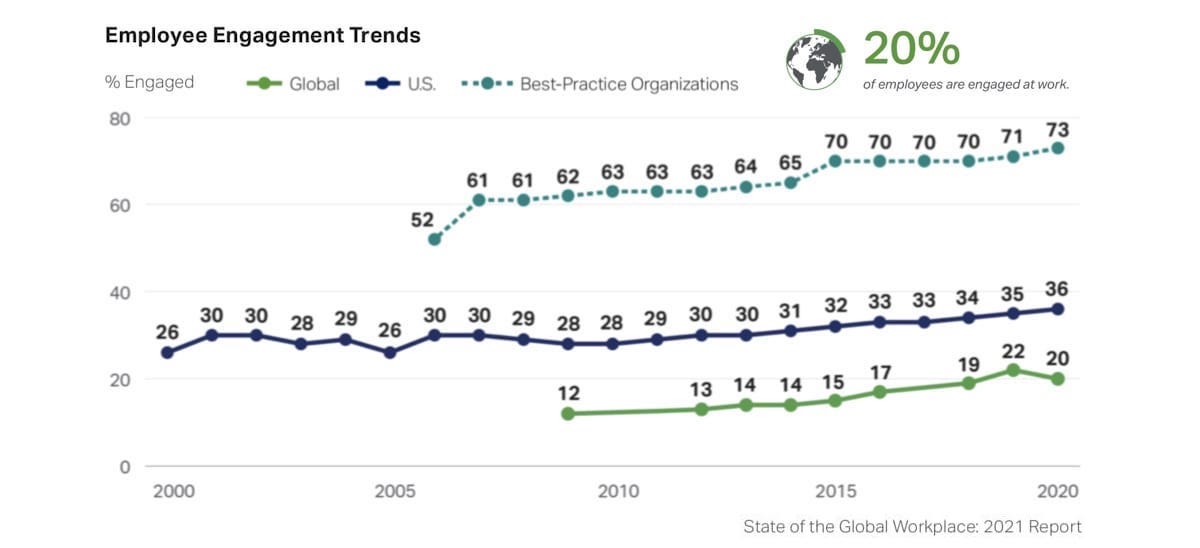In today's fast-paced and rapidly changing workplaces, employees face numerous stressors that can negatively impact their work performance and personal well-being. From firm deadlines and demanding schedules to conflicting priorities and interpersonal conflicts, the list of stressors can be numerous.
However, it is essential to understand that stressors aren't the same as stress.
Stressors represent external factors that trigger stress reactions, whereas stress is your actual subconscious inner reactivity.
Stress is the adverse subconscious inner reactivity experienced by a person when in contact with different external pressures.
Stress is experienced only when the mind of the person fails to handle different excessive external pressures. Such inner reactivity is automatic and causes both hormonal reactions in the body (to perceived threats, danger or other stimuli) and also triggers irrational mental concepts and strong emotional reactions.
Common stressors at work
Heavy workloads combined with tight deadlines and too few resources are some of the top stressors at work. Dealing with those can lead to being overwhelmed and experiencing fatigue, stress or burnout, especially when there is no intrapersonal education and time for relaxation and breaks.
Difficult relationships with business leaders, line managers and coworkers can be seen as stressors triggering both stress (which in chronic form often leads to burnout) and anxiety. When stress, burnout and anxiousness aren't dealt with early on it may in the long run lead to depression (one of the leading causes of depression is work-related) and anxiety. This is why an early proactive mental wellness approach matters.
Communication within the workplace suffers heavily when there are toxic workplace relations due to overboiling emotional reactivity and mental blaming. Gossip, anger and blame fuel this kind of situation out of control and can cause resignation.
When people feel unappreciated or undervalued and overregulated there is no room for personal initiative and securing the basic needs of mental wellbeing.
Also, due to poor intrapersonal skills people lack the skills to listen with full awareness and thus see only their side of the equation.
Lack of empathy and mental wellness in the work culture makes people feel unheard.
Feeling like you have no control over your workload, schedule or decisions can make it difficult to deal with all the stressful situations. Employees should feel free to say no to excess workloads and employers should correct workloads when needed. If there isn't enough staff, employers need to cut back on goals and activities. More stress often adds stress, as when someone takes a sick leave, others get a bigger workload.
Remember, when you lose your staff due to stress and burnout, you lose your key players and may end up losing your business.
In today's business climate mergers, accusations and other major changes in the workplace (such as restructuring or layoffs due to an economic downturn) can cause significant stress among employees. When such uncertainty is badly communicated and combined with powerplay and inadequate compensation people feel undervalued.
Also, a low salary in itself causes financial stress as it is hard to manage personal lives due to inflation and too little free time. So besides work, there are also macroeconomic stressors from currency printing to shifting international economic relations, be it due to Brexit or de-dollarization.
For sure the list of stressors is extremely long, from updating computers and programs/apps to the modernization of equipment, dealing with supply chain problems, rising prices, new regulations and from taxes to broken gear and too many incoming phone calls.
When work demands exceed the time and energy and personal skills available and there are different stressors, it will often lead to stress and burnout that in turn will cause severe negative effects on one's personal life.
We all have one life and employees in modern workplaces need to learn work-life integration principles so that family issues can be dealt with when they are urgent and work issues can be planned more flexibly.
Mitigate stressors and train your bright minds
As an employer, it's crucial to understand the different stressors that employees in your team may face and take proactive steps to mitigate their impact. This can include implementing flexible work schedules, offering remote work options, and creating policies and practices that support work-life integration.
Remember, removing all the stressors is never possible while learning awareness-based intrapersonal skills that allow removing inner reactivity is always possible.
Removing stress and nipping burnout and mental health issues at work demands good intrapersonal skills.
As skills are always personal, everyone needs to train their minds just as we train our bodies. So besides gyms, spas, fruits and water we also need to train our minds systematically and that is why we founded Wellness Orbit mental wellness gym, so that you can support your team to stay mentally fit and well.
Keeping your mind well demands training it while you are still well.
Good intrapersonal skills improve self-leadership and leadership and have the power to remove negative intrapersonal relations and toxic workplace problems.
By giving access to mind health trainings employers can improve employee health and well-being significantly and see a tenfold ROI of mental wellness and mind health related proactive investments.
|
Training our mind systematically allows us as individuals to reduce stress reactions and increases personal responsibility and initiative.
We need both – safe, well-run and distraction-free work environments where people can focus as much as we need good intrapersonal skills and excellent mind health.
Reducing irritating stressors and over-regulation and improving intrapersonal skills at the same time can increase productivity and job satisfaction.
The other actors behind employee engagement
Employee engagement, appreciation, and recognition are crucial factors that contribute to a thriving and flourishing workplace environment.
The global employee engagement level is just around 20%, while in best-practice workplaces the employee engagement numbers rise above 70% (see the graph below).
The difference is more than threefold.

Why it matters?
Different stress studies point out that only about 20%-30% of employees don't suffer from stress. Those who feel stressed are not equally engaged and productive as those who feel well. What most people miss here is the correlation between stress and employee engagement studies.
Employees who know how to reduce their stress are more engaged and committed to their work, thus also more productive and less likely to burn out or have different (mental) health issues.
Stress reduction skills improve personal initiative and reduce employee turnover.
Appreciation and recognition are essential to building a positive workplace culture and fostering a sense of community and belonging.
By rewarding employees for their demanding work and successful results, leaders support their willingness to contribute. It also improves employee engagement and makes job satisfaction the norm.
Mind health as part of a sustainable and thriving workplace
By prioritizing mind health training and well-being, workplaces can create a more sustainable, thriving, and flourishing workplace environment that benefits both employees and the business as a whole.
This means moving away from a narrow focus on Excel-table-based management and cost-cutting to a more sustainable efficiency that values individual initiative and good work-life integration paving the path for long-term health and personal well-being.
By providing access to regular mind health training employers can boost good work relations and personal responsibility.
When your team has fit minds and people take more initiative you can reduce overregulation and meetings.
Securing excellent mind health permits one to build a more individual talent-centric workplace focused on productivity, innovation, and collaboration. Such friendly workplaces allow individuals to thrive and support employee health and well-being.
By allowing failure and noticing and being thankful for achievement and success and leaders win as they stop losing their staff to competitors and chronic stress related problems.
When stress levels are significantly reduced and you stop losing your brightest minds to burnout or other mental health issues.
Conclusion
Prioritizing employee health and well-being is crucial for creating a sustainable and thriving work environment where individual talent is appreciated.
By understanding both stressors and the importance of stress reduction in the workplace and making proactive mind health training a norm, it becomes possible to prevent employee burnout, lower turnover, and reduce absenteeism and presenteeism. But more than that, as we have proven in our blogs, systematic mental wellness training also increases productivity, engagement and job satisfaction.
Ultimately systematic mind health training in combination with good work culture benefits both employees and the workplace as a whole, creating a win-win situation for everyone involved.





